Choosing an eCommerce platform can be daunting, as there are numerous options available in the market, each with unique features. Are you currently considering Big Cartel vs Shopify but confused about which one to choose? Don't worry! LitExtension – #1 Shopping Cart Migration Expert will break down each platform's strengths to help you decide which best aligns with your goals. Here’s what I am going to cover in this article:
- An overview of these two platforms.
- The detailed comparison of Big Cartel vs Shopify.
- Most frequent-asked questions related to the topic.
Keep scrolling to find out!
Big Cartel vs Shopify: Quick Verdict
In brief, it's the universal truth that Big Cartel’s features cannot possibly match up to Shopify’s. However, it always comes down to the users deciding which one is better for them. Here's a quick summary of the pros and cons of both platforms to give you an overall view after all:
Features |  |  | Winner |
Overall rating | |||
• Gold: $0 | • Basic: $39/month • Grow (formerly Shopify): $105/month • Advanced: $399/month • Shopify Plus (Enterprise): Starting $2,300/month | Big Cartel | |
• Easy to use with straightforward process. | ✧ Require more time to set up a fully functional store. | Big Cartel | |
• 15+ free themes. • Need paid plans for advanced customizations. | • 260+ free and premium themes. • Highly customizable and responsive for all mobile screens. | Shopify | |
• Less than 50 in-house apps. | • 13,000+ apps for all categories. | Shopify | |
• Limited number of products. • Fall short on eCommerce features. | ✧ Powerful built-in features such as product management, cart abandoned, etc. | Shopify | |
• Fundamental marketing functionalities. • Automatic SEO based on Google guidelines. | ✧ Powerful integrated email marketing tools. ✧ Built-in SEO settings for products. ✧ Various marketing apps for advanced features. | Shopify | |
• Insufficient channels with only Facebook, Instagram, and offline. | ✧ Outstanding omnichannel settings with numerous selling sites. ✧ Exclusive POS capabilities. | Shopify | |
• Restricted integrations and features than Shopify. | ✧ Extensive dropshipping apps with useful features. | Shopify | |
• 2 payment processors. | ✧ 100+ payment gateways & Shopify Payments. | Shopify | |
• SSL encryption for all domains, including customized one. | ✧ SSL encryption. | Shopify | |
• 3 channels: Email, Help Center, and Social media. • Helpful knowledge base. • Not available 24/7. | ✧ Various support channels: email, live chat, phone, support center, blog, forum, social media. ✧ Available 24/7 | Shopify |
Big Cartel vs Shopify – Who Should Use Which?
I have thoroughly compared Big Cartel and Shopify, and based on my analysis, here's the final takeaway for who will benefit from the Big Cartel platform:
- Artists and creatives who sell unique, handmade, or artistic products.
- Small-scale businesses, such as entrepreneurs with a limited product range and modest sales volume.
- Budget-conscious sellers, such as individuals or businesses prioritize low subscription costs and minimal transaction fees.
- Tech-minimalists, such as users prefer a simple and easy-to-setup store without a steep learning curve.
If you're wondering whether Shopify is the right eCommerce platform for you, here's my recommendation. I suggest using Shopify if you fall in any of the following categories:
- Growing businesses: who want to grow in terms of product offerings, sales volume, or customer base.
- Feature-driven sellers: who need advanced inventory management, shipping options, and marketing tools.
- Customization enthusiasts: those who want a wide range of theme options and a large app marketplace to personalize your store's look and functionality.
- Ambitious brands: that strive to build a strong brand identity and scale your business to a large-scale online operation.
Note: There might be cases where businesses could thrive on either platform depending on individual factors. Big Cartel can be suitable for scaling businesses if their needs remain relatively simple. Shopify can still be beneficial for artists and creatives. Try it your way and find your final destination.
Big Cartel vs Shopify: In a Nutshell
I did thousands of migrations of Big Cartel and Shopify for my clients. They were on the fence about which platform to switch to—Big Cartel or Shopify. So I gathered their feedback and combined it with my own testing experience. Since I have been in the business for over a decade now, I know the two platforms, how they function, and which type of online store fits in with each. Before digging into the details, I want to share some overview information on Shopify vs Big Cartel.
Big Cartel overview
This solution is a cloud-hosted eCommerce platform that is specifically built for artists looking to sell individual items. It's more like a niche market. In light of its simple sales features, Big Cartel is a quick and easy solution to monetize your business. Even beginners can easily get a handle on it in a second. Even though it only accounts for 0.09% of the market, the platform still has a great number of loyal fans. It is currently hosting nearly 70,000 live websites and ranks 12th in the most popular on the entire internet in the hosted solution category (Source: BuiltWith). If you're just getting started and need the simplicity of having a limited budget, Big Cartel might just be the ticket. In other words, Big Cartel is a risk-free choice for starting out in a small business.
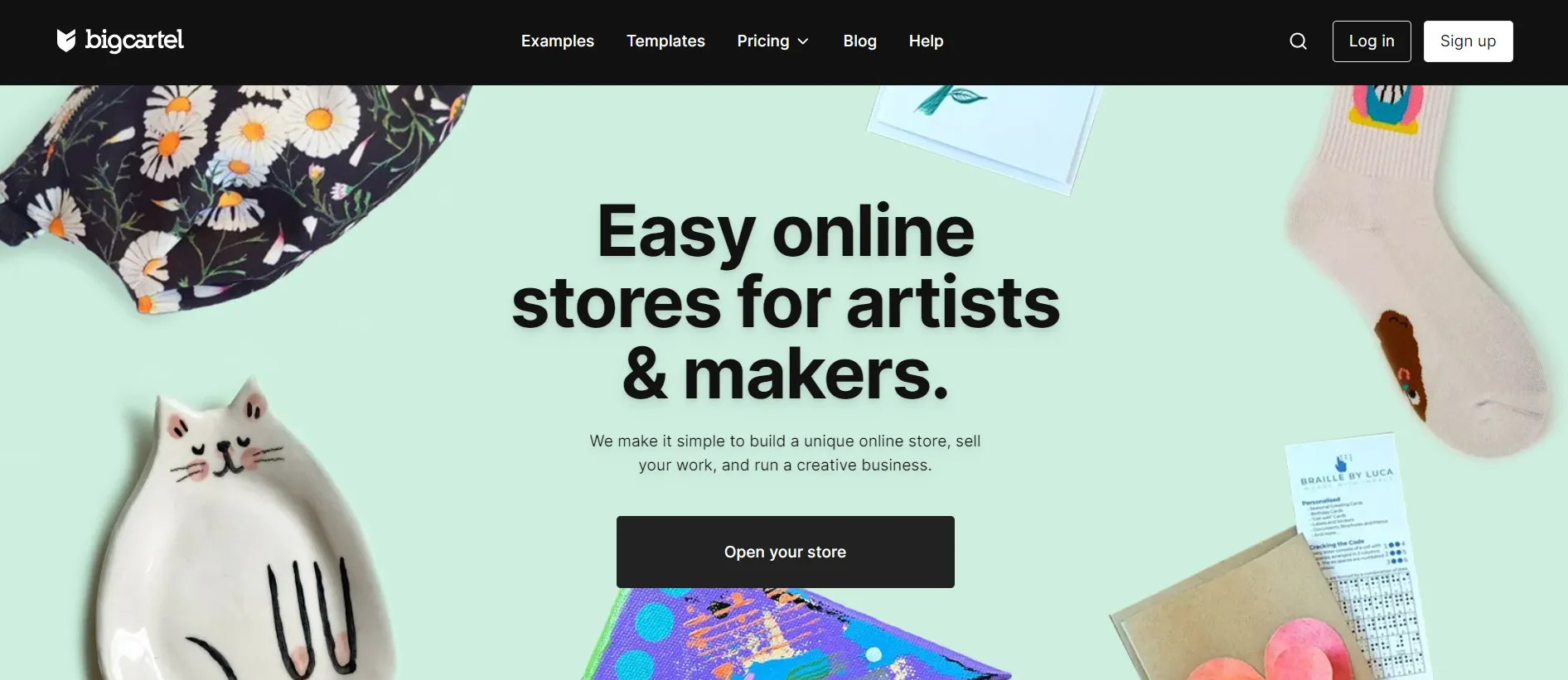
Big Cartel Pros | Big Cartel Cons |
Easy to use | Little room to modify |
Maximum 500 products | Limited selling channels |
Free plan | No transaction fee |
Affordable price | No 24/7 live chat and phone support |
Free themes |
Shopify overview
On the other hand, Shopify is one of the top hosted-cart solutions, targeting all kinds of businesses from small to large scale. According to BuiltWith, at the time of writing, there are nearly 5 million live stores that are Shopify’s customers. With such a high reputation, it’s not surprising that Shopify ranks third in the market. The platform has a wide range of strengths. It serves as a complete bundle, allowing you to easily create and customize your online shop. And, of course, it'll be a deficiency, not to mention its extensive marketing features.
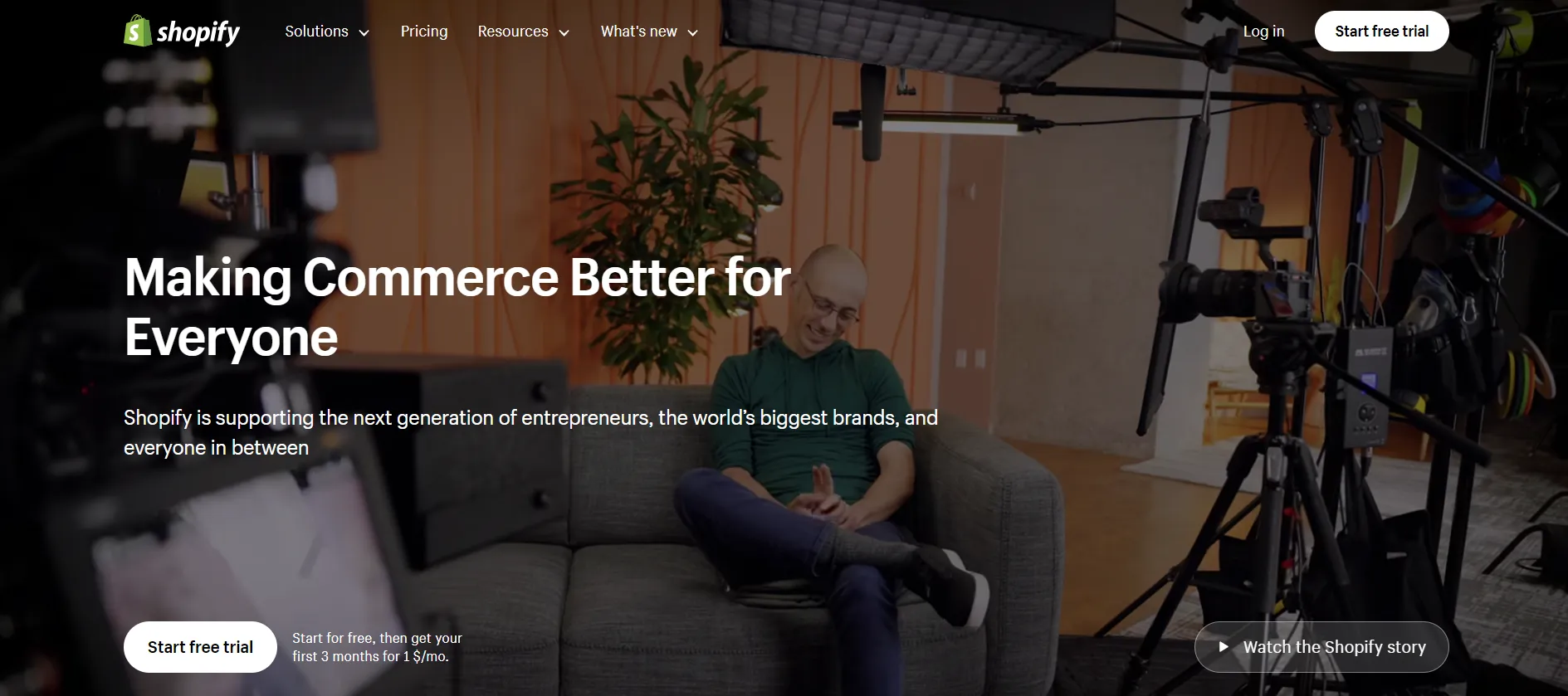
In brief, Shopify is a powerful eCommerce store builder with out-of-the-box functionalities and great customization ability. It's also very easy to use. It's the first place that comes to mind when thinking of a good place to start an online business.
Shopify Pros | Shopify Cons |
Easy to use | Additional transaction fee |
No products limitation | Costly themes |
Diverse app selections | Monthly costs added up with apps |
Excellent customer service | |
Robust sales features | |
Flexible customization tools |
1. Pricing (Big Cartel Wins)
The Verdict
Big Cartel is clearly cheaper than Shopify. Therefore, it is a good selection for startups or small businesses to build their online stores.
As we all know, being mindful of your budget constraints when starting out a business is a must. Understanding the financial aspects of each platform is crucial in determining which one aligns best with your goals. That's why I started out the Big Cartel vs Shopify comparison with pricing!
Big Cartel pricing
Big Cartel comes with a simple and clear pricing plan. It has 3 tiers based on the number of products you list. However, even the costliest plan can only allow you to upload 500 products maximum. Hence, if you own a bigger-scale enterprise, Big Cartel’s inventory allowance is not enough. Yet, it does equip you with all the basic features that you might need to run your online store. What I love about this platform is the addition of Big Cartel sales tax autopilot to all pricing plans. This tool will automatically calculate and remit sales tax on purchases made in your shop.
Shopify pricing
Unfortunately, Shopify doesn't provide a free pricing plan. However, this platform does offer a Shopify free trial in 3 days. The biggest difference between Big Cartel and Shopify is that you’ll be able to list unlimited products regardless of which plan you choose.
Basic Shopify $39/month | Shopify $65/month | Advanced Shopify $399/month | |
Transaction Fees *if not using Shopify Payments | 2.9% + 30¢ USD online 2.6% + 10¢ USD in person 2% 3rd-party payment providers | 2.7% + 30¢ USD online 2.5% + 10¢ USD in person 1% 3rd-party payment providers | 2.5% + 30¢ USD online 2.4% + 10¢ USD in person 0.6% 3rd-party payment providers |
Additional staff accounts *assign & manage staff's activities | — | 5 | 15 |
Custom apps | Standard | API PII access included | API PII access included |
Checkout capacity *automatically manage & operate stores | Standard | Standard | 10x |
Shipping Discount *shipping subsidies with leading carriers | up to 77% | up to 88% | up to 88% |
Duties and import taxes | — | — | fully supported |
Localized selling with custom markets | 3 markets | 3 markets | 3 included + $59/mo per added active market |
One more thing to take into consideration for Shopify price is the additional payment fees. Unlike Big Cartel, all Shopify pricing plans charge extra fees for payments made via the platform. But it’ll become completely understandable once you start experiencing all the features that it delivers.
2. Ease of use (Big Cartel wins)
The Verdict
Big Cartel is a better choice than Shopify for creating a fully functional storefront with little time and effort. It's not that Shopify is extremely difficult to use, but the onboarding process is still not as smooth as Big Cartel.
Let's further assess the user-friendly aspect of both platforms:
Big Cartel ease of use
The process of building a new store on Big Cartel is incredibly easy and straightforward. You only need to upload your product images, set the prices, and then select a suitable store theme. And that's when you can already start selling on Big Cartel! Don't worry if you lack technical knowledge. A setup wizard will guide you through all the steps thoroughly. You can always find additional information in the Help Center.
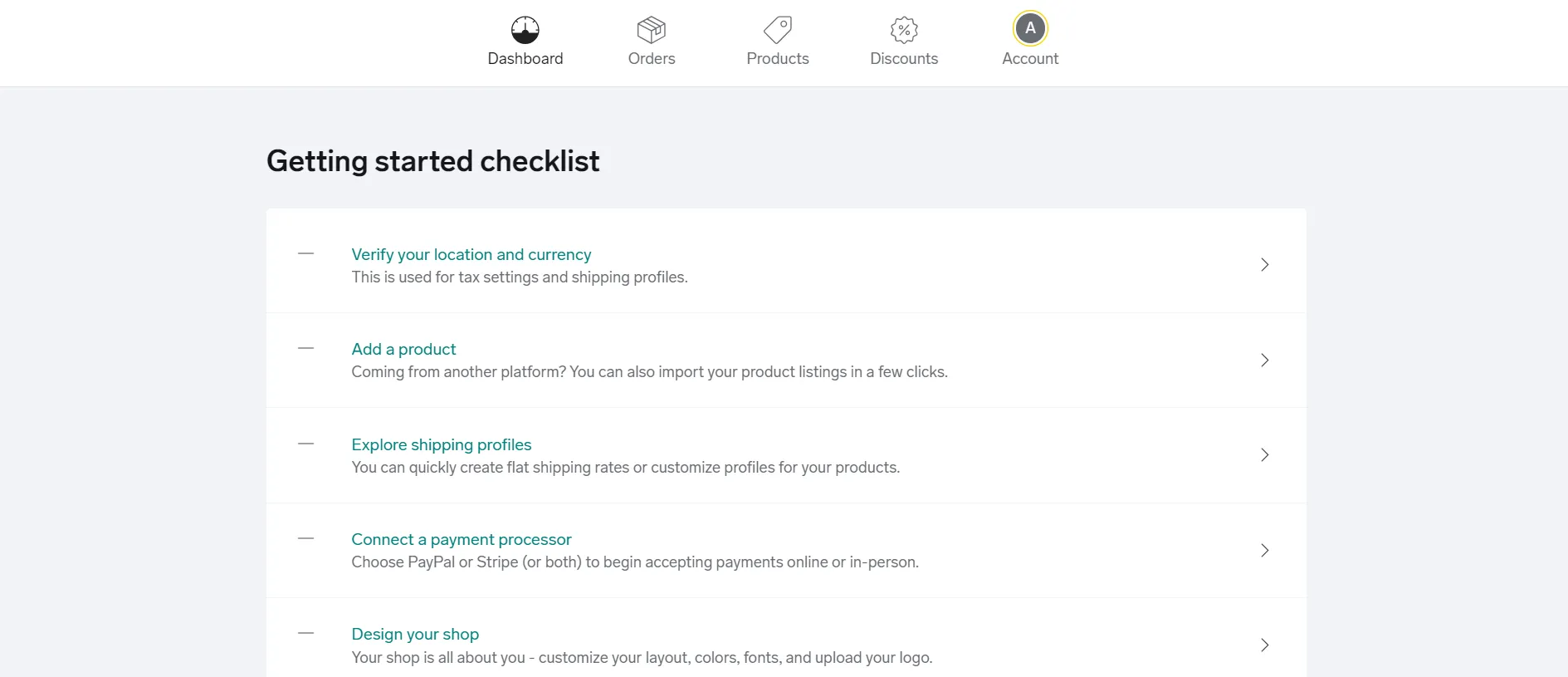
Shopify ease of use
In this aspect, Shopify may be a little bit more complicated since the platform is extremely feature-rich. Nevertheless, it’s still structured to deliver services in a simple and systematic way. So, you'll be able to set up and manage your store within a few simple steps.
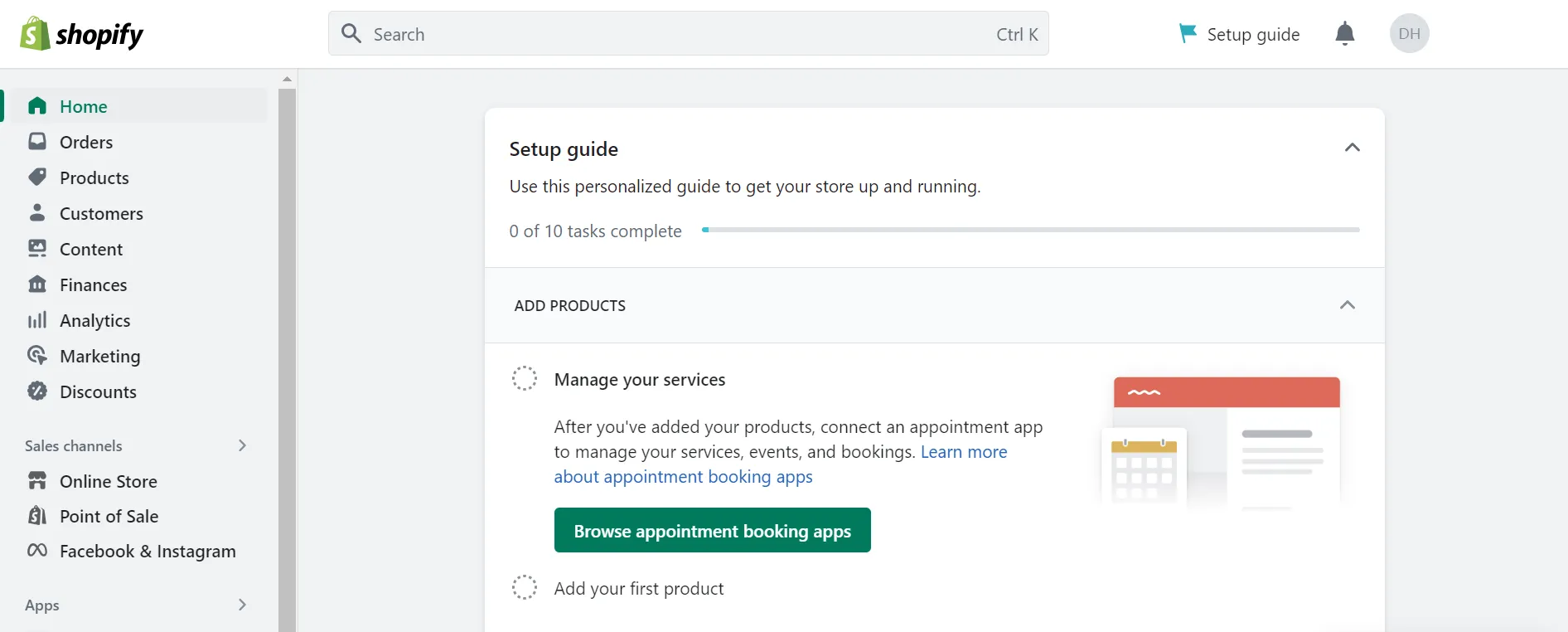
3. Themes and flexibility (Shopify wins)
The Verdict
Between Big Cartel vs Shopify, Shopify is the obvious front-runner as it offers a larger and more diverse selection of well-made themes (260+ compared to Big Cartel's modest 15+) to help users quickly set up an aesthetic store.
People make snap judgments. It takes users about 50 milliseconds (ms) (that’s 0.05 seconds) to form an opinion about your website that determines whether they’ll stay or leave. Therefore, choosing the best theme that matches your business is of great importance.
Big Cartel themes
Big Cartel offers 15+ free and aesthetic themes, which is much fewer than on other eCommerce platforms. In fact, free accounts can't modify the themes at all. Hence, you’ll need to purchase paid plans if you want to make any adjustments in the code segment. Nevertheless, they will be the best choice for artists, photographers, etc. All the themes are neatly designed for art-based online stores. Enterprises selling clothes or jewelry can also find these themes very attractive.
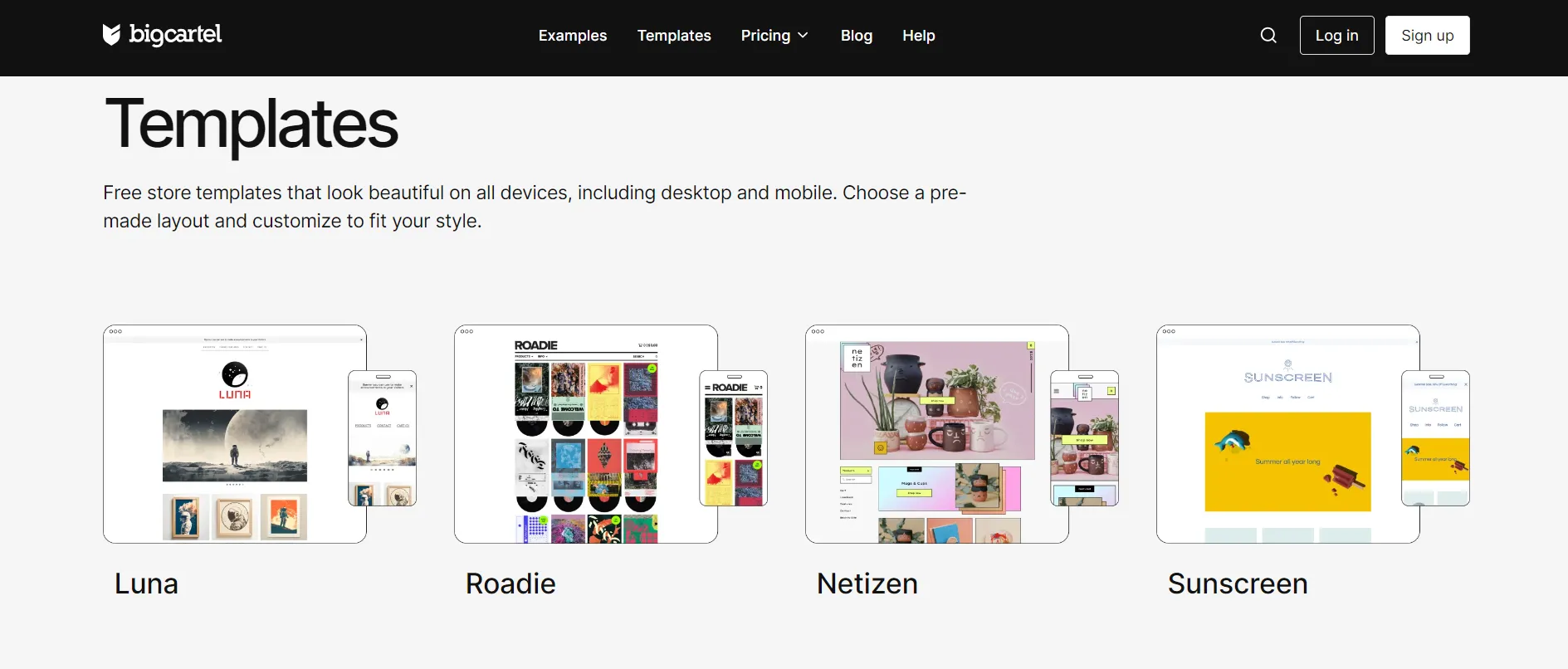
But be careful because there'll only be little room for customization. Moreover, they offer very basic Big Cartel website builder tools, so it'll be a hassle if you want to adjust anything outside the guidelines. The good news is that you can switch your theme whenever you like. Your products will be automatically re-formatted to fit the new design. Another plus point is that the layout automatically adjusts itself on mobile devices. Yet, it’s impossible to make any modifications to that mobile site version.
Shopify themes
In contrast, Shopify is undoubtedly ahead of the game. It offers 260+ different attractive and professional templates, which is more than enough for you to create a unique online store across all business categories. No matter what your business type, you can definitely find a Shopify theme that best suits your store.
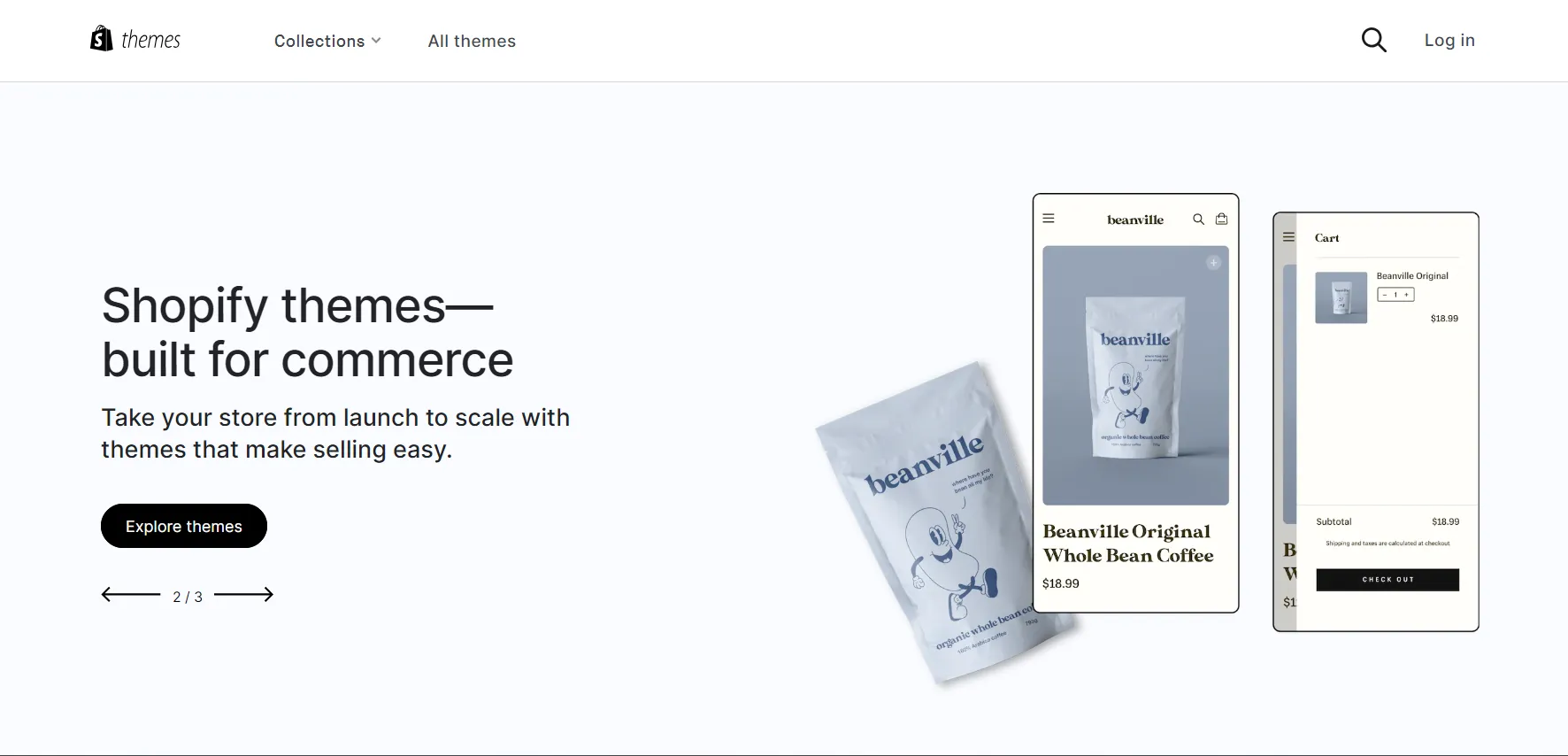
Besides, unlike Big Cartel, Shopify themes are extremely diverse. You can customize them or create your own if you know Shopify’s template language, Liquid. Start to thrive your store by selecting the best Shopify themes from today! Additionally, Shopify’s themes adapt to the mobile design by default. You can freely tweak its code to create your desired outlook for the mobile version. The only drawback, however, is that only 12 of them are free. The rest all cost certain prices, ranging from $100 to $500. But it totally makes sense when you are granted the privilege to extensively customize them without any coding experience.
4. Apps integration (Shopify wins)
The Verdict
Shopify takes the crown thanks to its 13,000+ app integrations. On top of that, it doesn't rely on third-party tools to install apps like its competitor – Big Cartel.
To clarify, on both platforms (Big Cartel vs Shopify), you can install apps that enhance various aspects of your business, such as shipping, SEO, and marketing. What matters is why Shopify offers a superior selection of apps – which we will explain in the section below.
Big Cartel apps
Big Cartel permits integration with over 1500 third-party apps with the assistance of its paid plugin, Zapier. Without Zapier, you can still add about 25 software tools, such as Facebook Store, MailChimp, Instagram, ShipRobot, etc.
These Big Cartel integrations can dramatically improve your store's marketing, store management, shipping, etc. However, keep in mind that some of the features included in those add-ons will charge a small monthly fee.
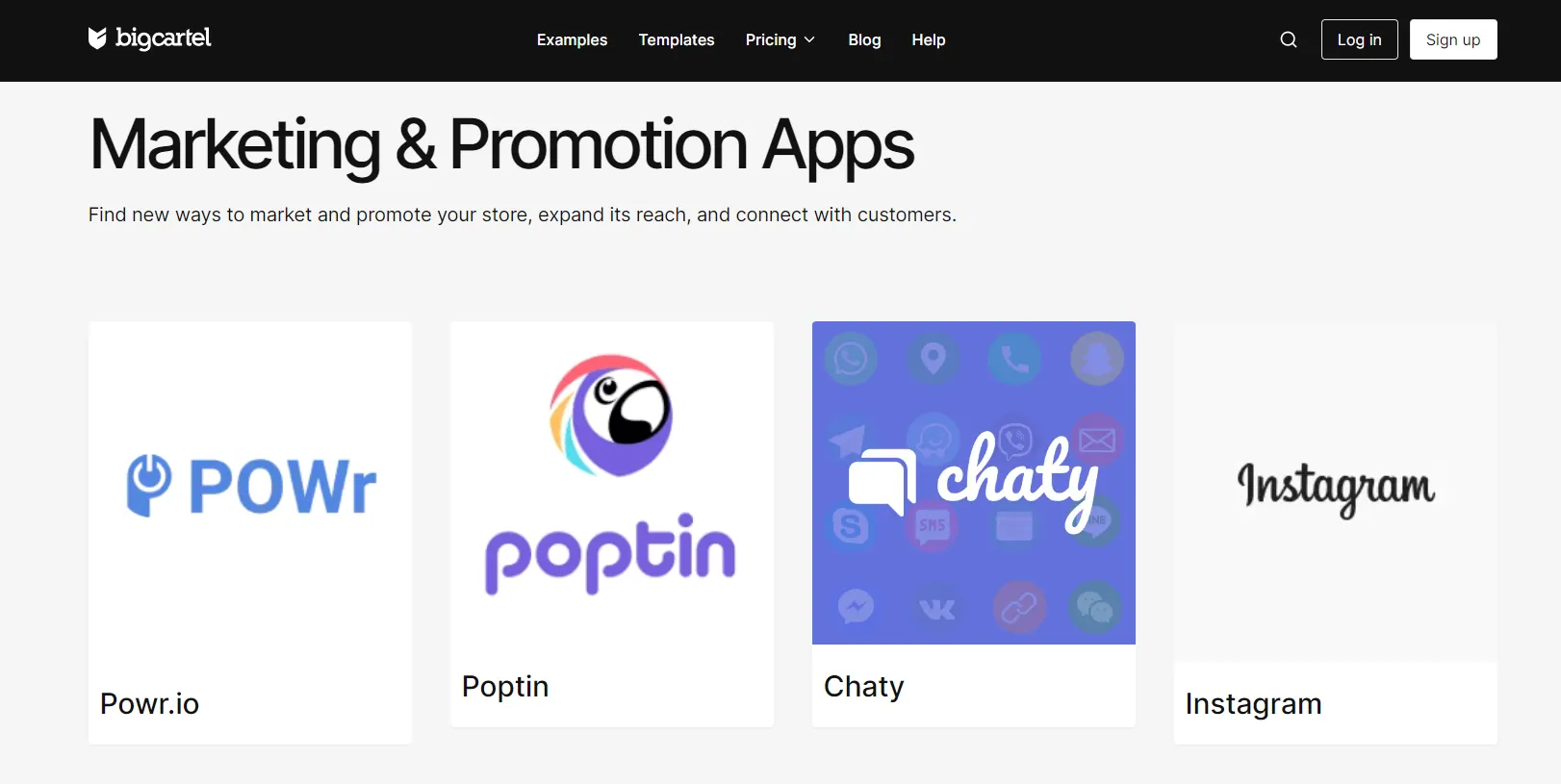
Shopify apps
To say the least, the Shopify App Store is one of the reasons that Shopify is famous. It comes with more than 8,000 app integrations for practically all web-based business functionalities. By choosing from a wide range of Shopify apps, you can enhance your store’s reporting, productivity, management, security, customer support, SEO, design, selling channels, and much more.
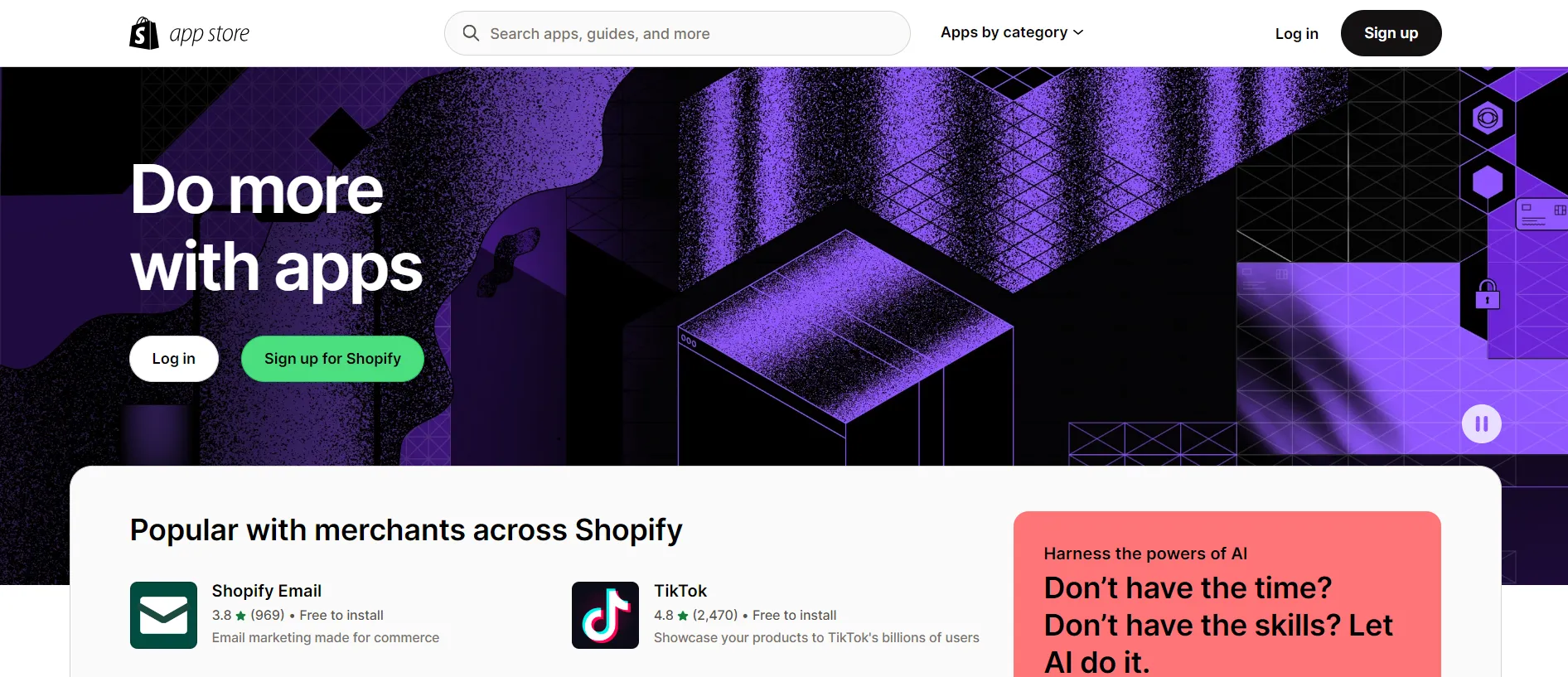
Again, the only problem is the cost. Most of these integrations will cost you an extra monthly fee. Therefore, remember to calculate all the Shopify fees in advance, or you'll be taken aback by how much those apps can add up to your overall cost. Needless to say, nothing on Shopify is free. Yet, I would say it's worth every penny you spend. You might want to take a look at the best Shopify apps and install one for your store now.
5. Sales features (Shopify wins)
The Verdict
Between Big Cartel vs Shopify, Shopify wins thanks to a wealth of eCommerce features to help with your store management process. As a result, it can easily assist even large businesses or enterprises.
Let's take a closer look at this crucial aspect:
Product management
Big Cartel: Since its main focus is simplicity, it was built to deal with only single items. As a result, Big Cartel lacks the ability to bulk import and update your products. This solution only allows a maximum of 500 products in the store's inventory. However, you can still easily add a new product, modify existing items, or update inventory status.
Shopify: One significant feature of this platform is that it offers no limitation on the number of products. You can choose to add products one by one or bulk update using a CSV file to save time and effort. Then, you’re able to freely edit numerous product information such as price, description, title, barcode, custom images, etc.
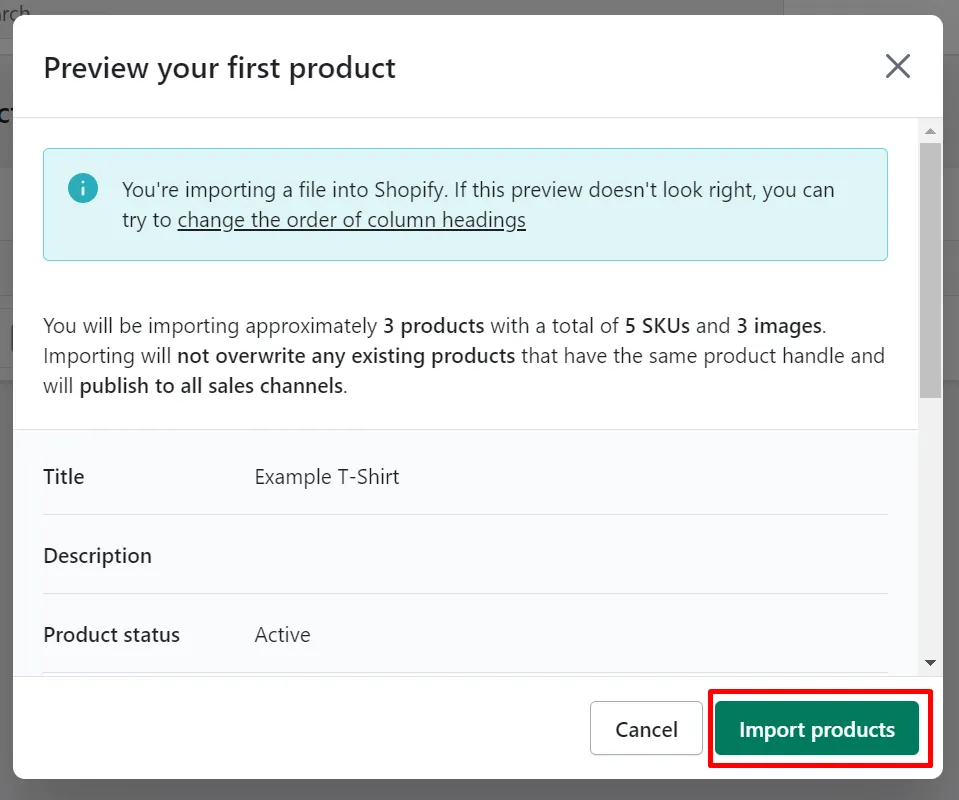
Abandoned cart recovery
Big Cartel: The biggest disadvantage for Big Cartel's online merchants is the lack of an abandoned cart recovery function. According to a survey conducted by Optinmonster, the average abandonment rate for a normal online store is usually between 60 and 80%. Therefore, lacking this crucial feature can cost Big Cartel's shop owners a huge revenue loss.
Shopify: Fortunately, it does offer an abandoned cart recovery feature along with every plan. This will help you remind customers of those items through emails and comprehensively analyze the abandonment instances.
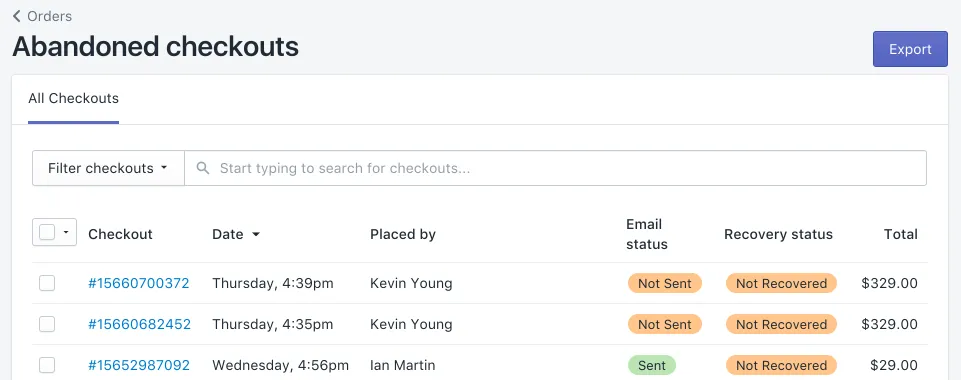
Shipping settings
Big Cartel: Although Big Cartel doesn't directly manage shipping, it compensates by providing integrations, like ShipStation. With this app, users can seamlessly connect with third-party shipping services. However, it falls short when compared to Shopify's comprehensive and built-in shipping support and capabilities.
Shopify: The Shopify Shipping suite helps simplify the management of rates and enables bulk label printing, with the added benefits of discounted rates for USPS, UPS, or DHL Express shipments. Additionally, subscribers to the Advanced plan enjoy the convenience of automatic carrier-calculated shipping rates included in their package.
6. Marketing and SEO (Shopify wins)
The Verdict
Even in its entry-level pricing package, Shopify has already included a plethora of integrated marketing tools, offering us – merchants the ability to thrive further.
Want to know why I came up with this conclusion? Keep scrolling:
Big Cartel marketing
In terms of SEO, Big Cartel automatically manages your website following Google's guidelines. The paid plans include Google Analytics to assist in understanding your website visitors' profiles.
In addition, Big Cartel offers fundamental marketing functionalities for online sales, including the ability to implement discounts and promotional codes, a feature available even within its free plan.
Nonetheless, if you plan to incorporate blogging into your marketing strategy with Big Cartel, you'll have to create it on a distinct platform and then integrate it with your store, which can be a cumbersome process.
Shopify marketing
Shopify's SEO tools guarantee that your website is optimized, increasing its visibility in search results and attracting a larger customer base. What we even love more is that Shopify automatically redirects customers to your site in case of URL changes. Trust me, it is a bigger help than we all thought!
Moreover, Shopify equips you with comprehensive tools to effortlessly promote your products. Shopify Email, its integrated email marketing tool, is complimentary for the initial 10,000 emails sent each month.
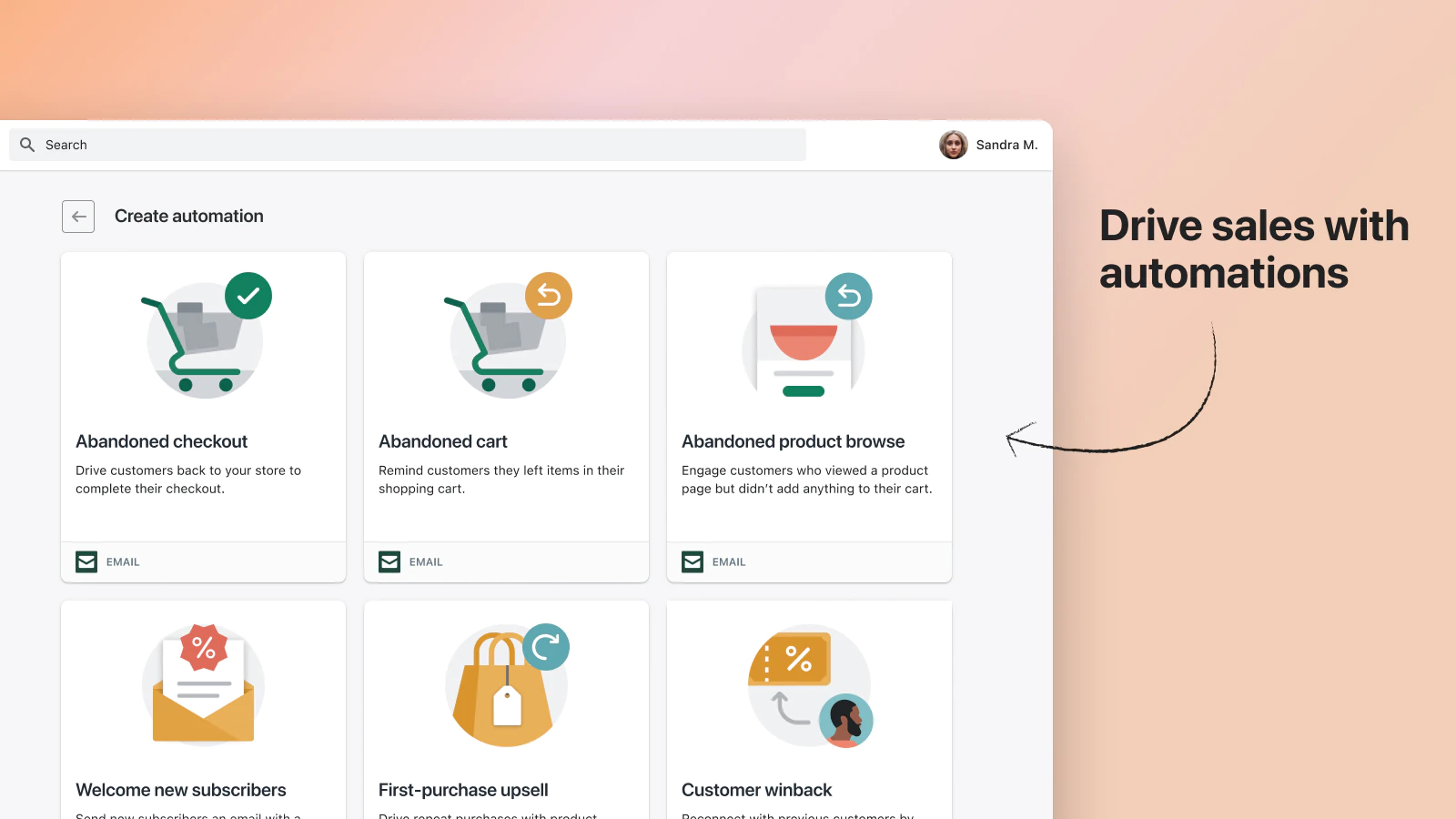
7. Selling channels (Shopify wins)
The Verdict
In this battle of Big Cartel vs Shopify, Shopify clearly has leverage since this platform supports both multichannel and omnichannel selling, which grants users a great opportunity to boost their sales.
Indeed, as I try out Big Cartel vs Shopify, I have held my own opinion as follows:
Big Cartel selling channels
Big Cartel has just only taken baby steps in this area with three secondary selling channels, including Facebook, Instagram, and offline stores. Unfortunately, this hosted solution hasn't included the omnichannel function. Despite supporting in-person sales through Stripe, Big Cartel doesn't provide the extensive features found in a traditional point-of-sale (POS) system.
Shopify selling channels
On the contrary, Shopify is particularly outstanding in multichannel retail. You can expand beyond your site to set up secondary selling points on Facebook, Instagram, Buy Button, Shopify Inbox, and even offline brick-and-mortar stores. Thankfully, the inventory is linked and coordinated in real-time to help you track all the sales concurrently. Furthermore, Shopify's exclusive POS app outshines Big Cartel's in-person selling solution through Stripe. With Shopify's POS app, you can swiftly initiate payment processing without the need for a third-party setup, and its accompanying hardware facilitates tasks such as credit card payment and more.
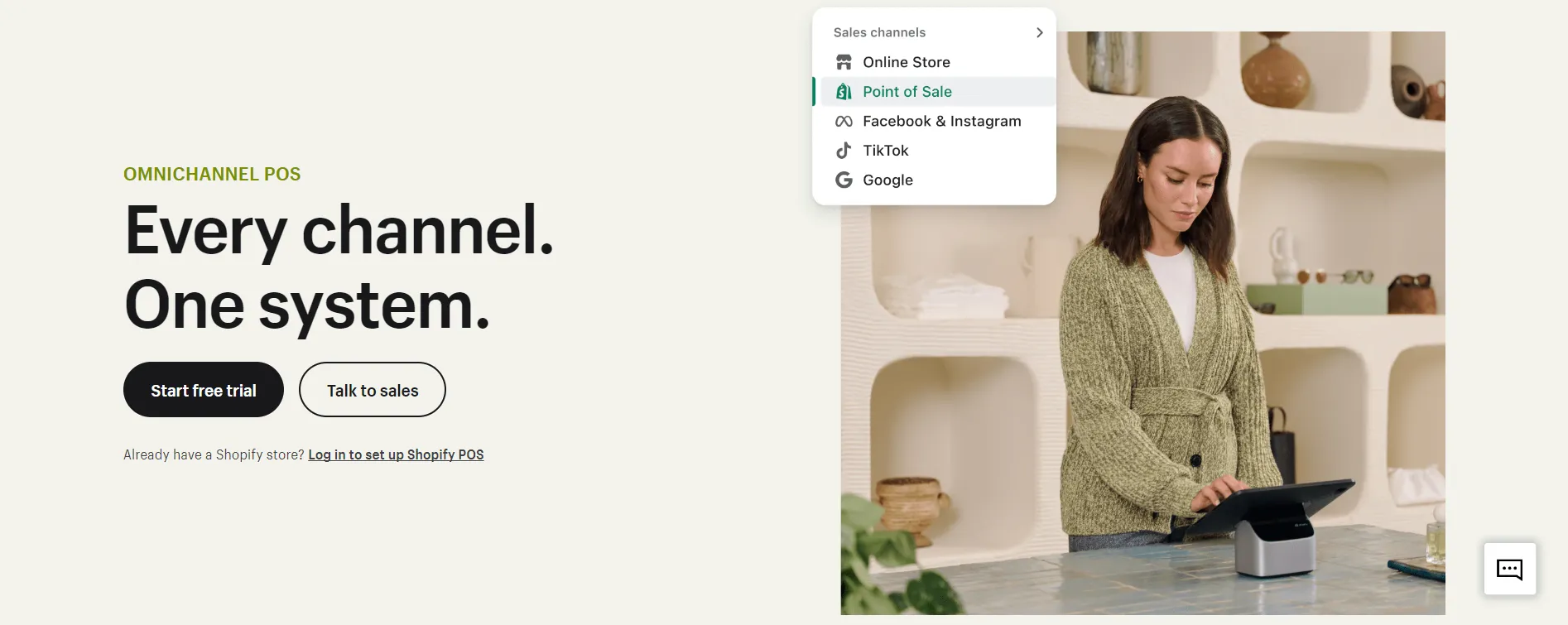
In case you have a large business, this eCommerce platform allows you to open multiple Shopify stores to maximize your revenue. But please note that this feature is only available for Shopify Plus users, so you'll need to upgrade your pricing plan.
8. Dropshipping (Shopify wins)
The Verdict
Shopify has a clear advantage over Big Cartel, since the extensive options on Shopify allow for more flexibility and scale compared to Big Cartel's restricted dropshipping integrations.
Here, I will explain who is the winner in the battle between Big Cartel vs Shopify in more detail:
Big Cartel dropshipping
Positioned as an artist-friendly platform, Big Cartel allows you to utilize Printful and Art of Where for dropshipping merchandise featuring your artwork. However, beyond these two options, its dropshipping automation and capabilities are notably restricted.
Shopify dropshipping
Meanwhile, Shopify is renowned for its dropshipper-friendly environment, offering a wide array of apps in its store to assist artists in this aspect. You can work with some of the biggest names with robust dropshipping features, such as AliExpress, Oberlo, Printify, and more.

9. Payment gateways (Shopify wins)
The Verdict
Once again, Shopify is the winner in this battle of Big Cartel vs Shopify as it can support a wide range of payment gateways. For that reason, Shopify has met the requirements of many e-merchants.
Why do we even have to evaluate this criterion in the first place? That's because efficient payment processing serves as a compelling reason for business owners to opt for their services instead of navigating the complexities independently. Let me give you more insights:
Big Cartel payment
This platform partners with some most popular payment gateways, including Square, Stripe, PayPal, Apple Pay, and Venmo. Although the options range is tight, the platform operates with a zero Big Cartel transaction fees policy. That means you only need to pay the processing fee for the gateways.
However, please note that Big Cartel does not come with Payment Card Industry (PCI) compliance. So, you might be liable for some of the industry guidelines when you’re processing card payments.
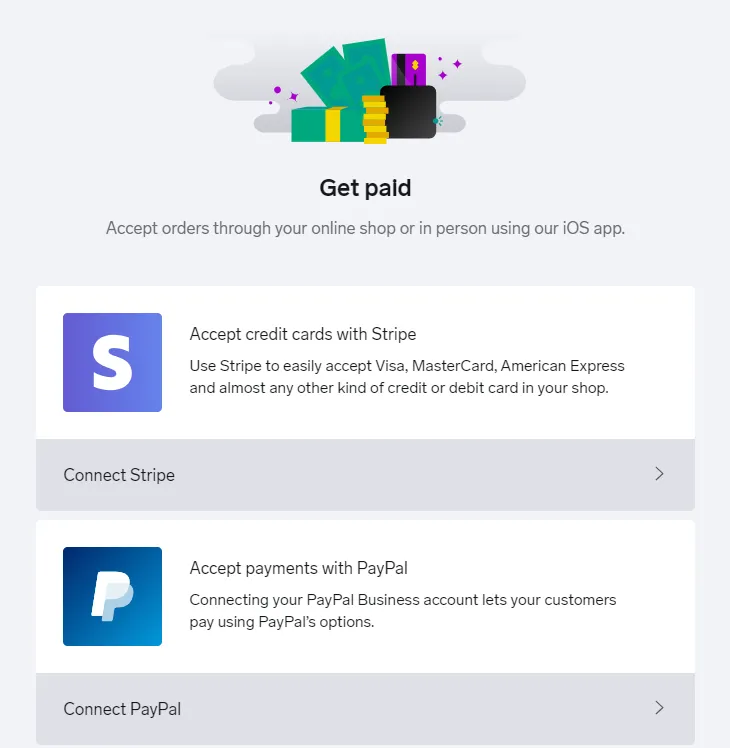
Shopify payment
Clearly, Big Cartel cannot compete with Shopify in terms of the number of payment gateways it offers. Shopify offers over 100 options, such as PayPal, Stripe, Apple Pay, Amazon Pay, and in-house Shopify Payments. In fact, everything comes at a price.
Apparently, Shopify Payments deducts hefty transaction fees each time you process a payment. And this is not included in the monthly subscription fee. In other words, you will only have to pay the credit card processing fee. This could save up to thousands of dollars in the long run.
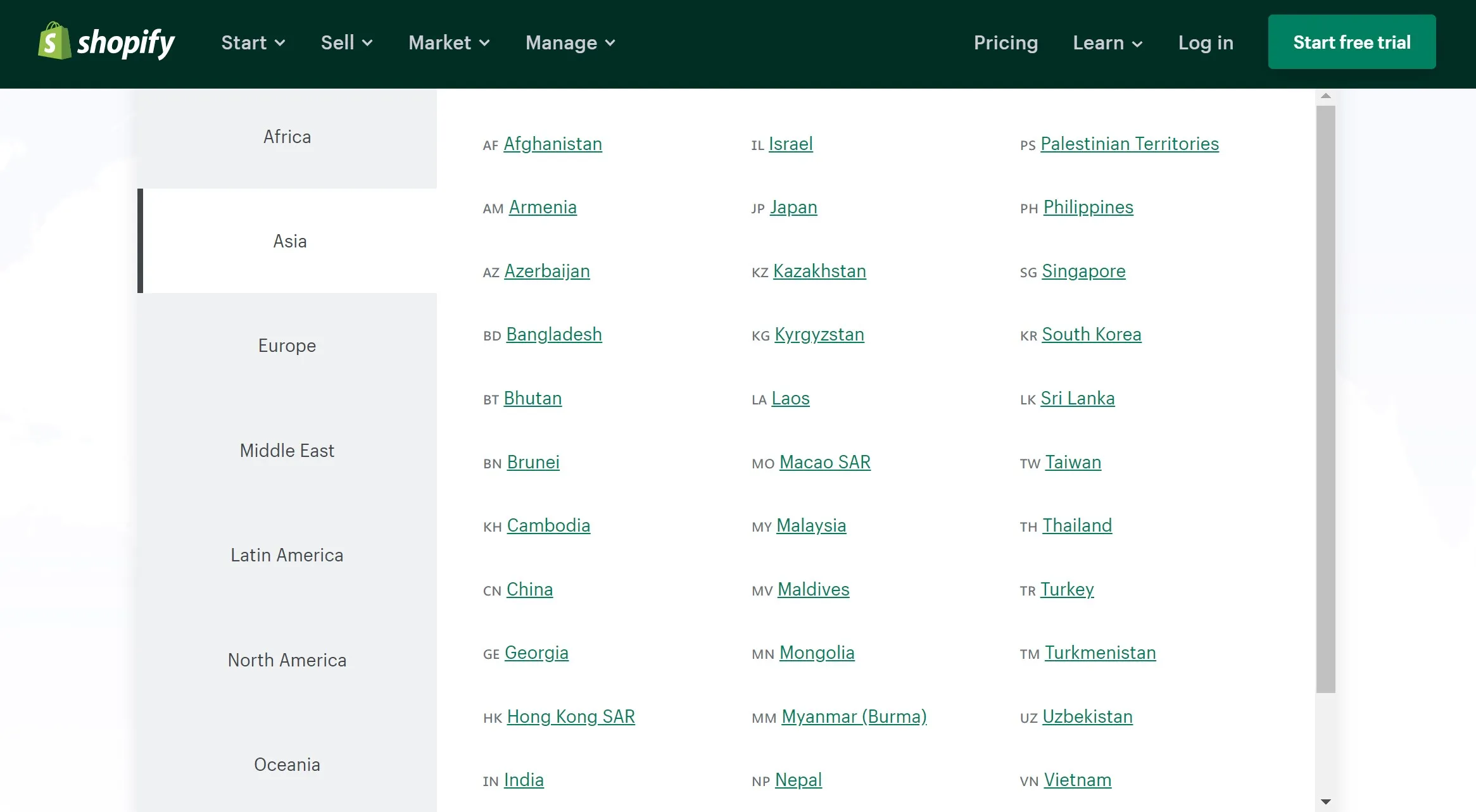
10. Security (Shopify wins)
The Verdict
Shopify clearly dominates with its excellent security measures and regular updates. Customers engage more knowing that their private information is in good hands, so you can't take security for granted.
To learn more about the differences and compare Big Cartel vs Shopify, let's read on:
Big Cartel security
Every domain on the Big Cartel platform, including custom ones, receives complete protection through SSL encryption. However, it's essential to note that if you incorporate unsecured assets such as custom images, CSS, and Javascript served over “http://” instead of “https://,” they may be exempted.
Now, onto the drawbacks – Big Cartel lacks PCI compliance. Failure to adhere to the Payment Card Industry Data Security Standard (PCI DSS) could result in substantial penalties, and it would permanently disqualify you from accepting credit card payments. This is a crucial factor to weigh carefully before deciding to create a Big Cartel account.
Shopify security
Shopify takes care of safeguarding against cyber threats, performs regular updates, and complies with the necessary standards for processing online transactions. This significantly simplifies your eCommerce journey compared to managing these aspects independently.
The platform fulfill all compulsory security layers, including SSL encryption, Level 1 PCI DDS compliant. You can get straight to selling and worry about nothing!
11. Customer support (Shopify wins)
The Verdict
Shopify provides multiple support channels, accompanied by dedicated live agents. Hence, unsurprisingly, the winning points go to Shopify in this battle of Big Cartel vs Shopify.
Of course, customer support might not be the initial consideration when selecting a platform – ideally, you won't even have to use it. However, akin to seat belts in a car, it's wiser to prioritize safety and preparedness. That's why we should look further into the customer support of both platforms here:
Big Cartel support
This platform only supports via 3 main channels: Email, Help Center, and Social media. But don’t worry, it’s really good at supporting the users within the building process itself. If there is an occurrence of any issue, you should first check out Big Cartel's knowledge base. Here they provide numerous, well-categorized articles offering straightforward guidance. Hence, you should be able to find what you need in a split second. You can also always send emails directly to <[email protected]>. However, Big Cartel customer service isn't accessible 24/7. They'll only respond between 9 a.m. and 6 p.m. EST, Monday through Friday.
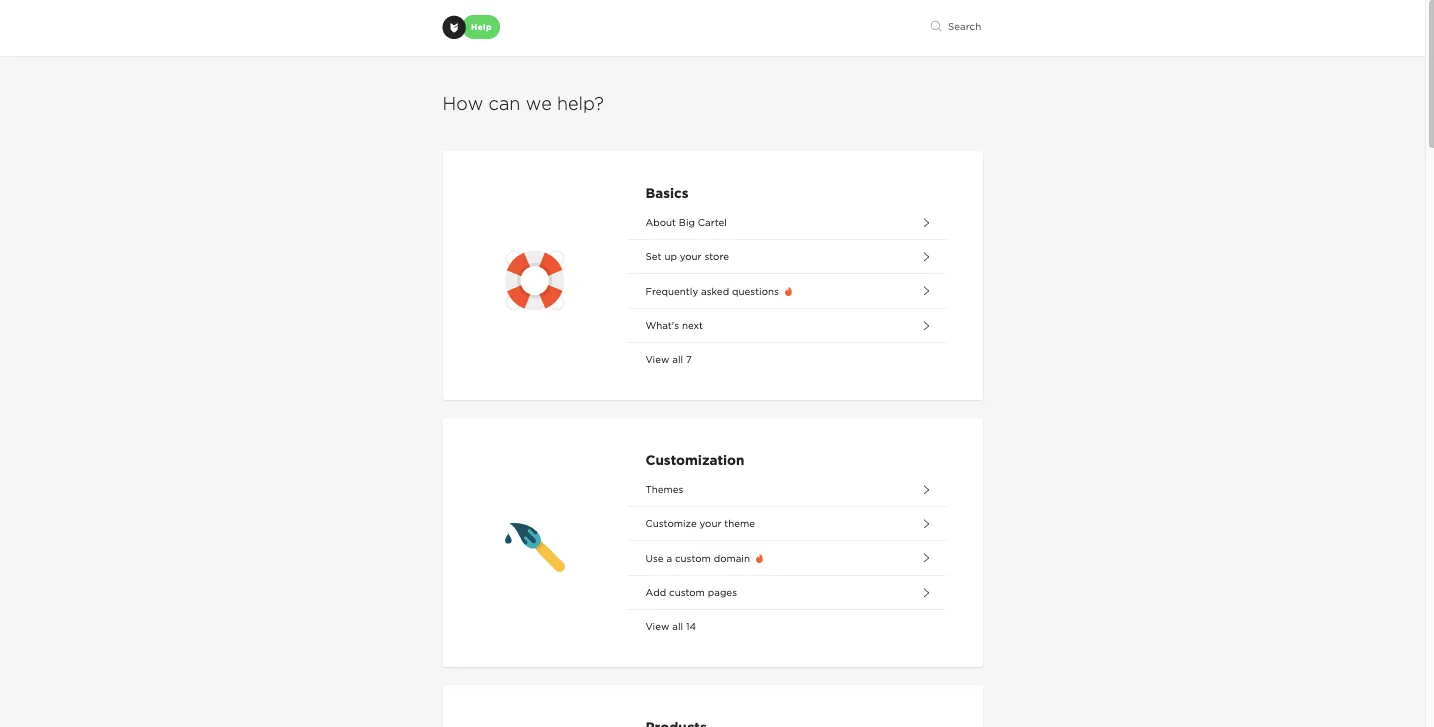
Another way to contact Big Cartel is via their social media including Facebook, Twitter (most used), Instagram, YouTube, and Pinterest. But for faster responses, they still advise customers to send emails instead.
Shopify support
In this round, it goes without saying that Shopify has completely won it. They provide help through every channel that you can think of – email, live chat, phone, support center, blog, forum, social media (Twitter, Facebook). But the outstanding point is that the support team is available 24/7.
You should be able to reach them even at night. The platform also provides its Shopify Plus users with dedicated support agents.
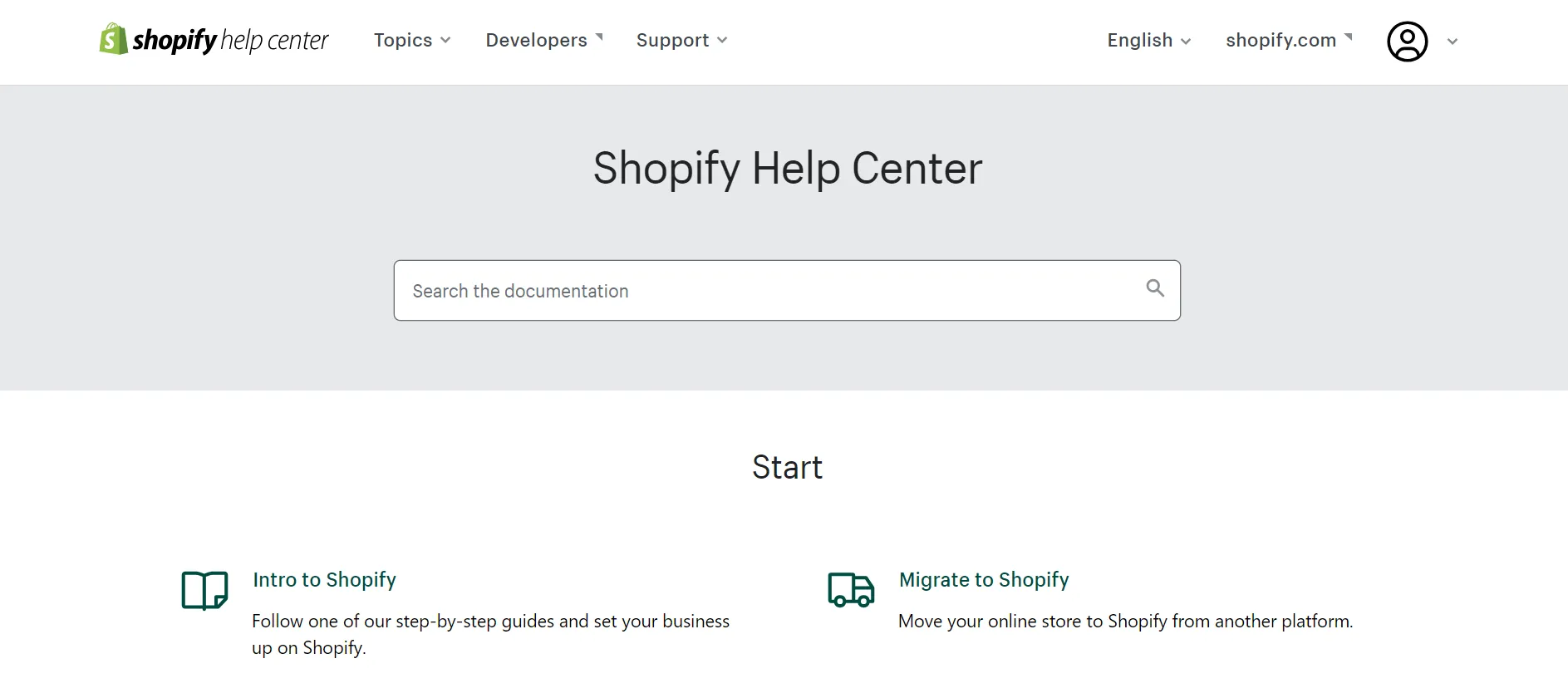
Shopify vs Big Cartel: FAQs
Is Shopify or Big Cartel better?
The choice between Shopify and Big Cartel depends on your specific needs. Shopify is generally considered more versatile and feature-rich, making it suitable for larger businesses with a wider range of products.
Can I switch from Big Cartel to Shopify?
At LitExtension, we support a seamless migration service from Big Cartel to Shopify. Your store and every necessary data inside of it will be transferred accurately with utmost security by our team of dedicated experts with 11+ years of experience.
Is Big Cartel good for eCommerce?
Big Cartel is a decent platform for selling, but especially for artists, creators, or those with a limited product catalog. It is known for its simplicity and ease of use, making it a good choice for artists and small-scale entrepreneurs.
What is better than Big Cartel?
If you're looking for alternatives to Big Cartel, platforms like Shopify, WooCommerce (for WordPress users), and Squarespace offer alternative features and may better suit your specific business requirements. Ultimately, the best platform for you depends on your business size, product range, and desired features.
Who is Shopify's biggest competitor?
Here are some of Shopify's biggest competitors:
- BigCommerce
- Magento (Adobe Commerce)
- Wix
- OpenCart
- and many more.
Conclusion
In conclusion, both Big Cartel vs Shopify is great and user-friendly eCommerce website builders. While Big Cartel especially focuses on small-budget retailers and artists, Shopify is for everyone. So, if you have the vision to scale up your online business, go for Shopify. If you already have a website and are considering moving from Big Cartel to Shopify, LitExtension can be your perfect partner. Should you have any questions, please contact LitExtension for help. My dedicated support team will respond to and answer all questions and recommendations promptly.
Last but not least, if you like Shopify, don't forget to check out other Shopify-related articles that I carefully crafted for you.

